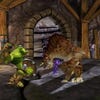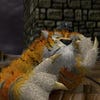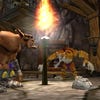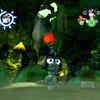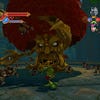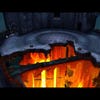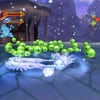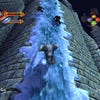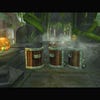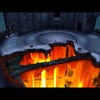Ex-Rare devs talk Killer Instinct, Perfect Dark
Starfire Studios recounts Rare's heyday.
Yeah, entirely. You're in a privileged position of making games. I still have the same enthusiasm as when I started. And when you finish off, if you're lucky, loads of people like it. And if you're not so lucky, you're not so lucky. It goes through phases. Perfect Dark 64, the press just absolutely loved it. Then with Perfect Dark Zero, we definitely made some mistakes with it. That's for sure. There was definitely a backlash from Nintendo fans and Microsoft fans.
The thing is, if you take the good things, you've got to take the bad things. If some people enjoy your game then maybe you've served your purpose and there isn't anything more. All the games we've worked on, they've all made money, which ultimately, if you're a business, that's what you have to do. Perfect Dark Zero, from a development cost, made four times its money back. The early games made a stupid amount of money back. Like GoldenEye and Donkey Kong, because they cost so little to make.
Tim and Chris were great at backing people and the ideas we were coming up with. There was a great education.
Let's be fair. We still have that backing. We were able to go to Ken Lobb, creative director at Microsoft, with a crazy concept that probably most people would turn down.
Every game I've made, I've worked with Ken. Ken was a big part of Killer Instinct. And in a way it's carried on. It was a good nurturing environment there. But things change. Back then a game cost $2 million to make. Nowadays a game costs $20, $30 million to make, and then they add probably the same amount in marketing. It's a huge risk. So more people have to get involved.
Before we left Rare we were working on an XBLA thing, which wasn't released. But nobody cared about it because it was so small. You're under the radar. It's just because games are so expensive to make now and management guys' careers are on the line if they back the wrong one, if they suddenly spent $30 million and got no return for it, that all these extra people have to get involved.
For us there was a definite gap between doing Perfect Dark 64 to Perfect Dark 360, where the team size just went ridiculous. But it's nowhere near the team sizes they have today where you've got 100, 200 people working on a team. On Project Dark Zero, we were probably 25 people for most of the project.
Yeah. And then it ramped up in the end.
Jesus Christ.
How many of those people are managers? I bet it's a lot of them.
Now programmers tend to specialise in one thing, rendering or UI or AI. Whereas back then you touched on everything. Obviously it wasn't anywhere near as good as what they do nowadays, but that's how things have gone, which hopefully isn't going to happen with the next series of consoles because if the teams get even bigger there's definitely a downside for the creators, and that is, unless you're maybe one of the top 20 people controlling the project....
That's why the onset of digital distribution has rejuvenated the industry to a large extent. It's got a lot of smaller, unique, interesting titles out there. Some of them aren't fully formed. Some of them aren't fully finished. But people appreciate the fact they're doing something different and they're happy spending their money on it. It's something different from another Call of Duty. Not that I don't like Call of Duty. It's great. But it's very similar to the last one.
If we did a new Killer Instinct - obviously we don't own the IP - if we were to make that game nowadays, the original team was six, seven people over the space of a year. Now, you could see how instead of one designer putting in all the moves for all ten characters, you'd have at least a designer per character. You would definitely end up with a better game. Absolutely guaranteed. But maybe not everybody on the team would get the creative satisfaction from it. And it might not make its money back. That's the dilemma.
Once the COD guys have made an amazing game with this many people, it raises the bar. You have to compete against that. It's like an arms race. Once you get in, you're in it. It's even a marketing arms race, where they spend more and more money to get the games out because they know you can make a $200 million bet and make $400 million back, and that's probably better than doing ten games for $20 million and not all of those making their money back.
It's also about the agility of the company and what you can take on next. Back in the heyday of Rare, we went to different genres depending on where we felt creatively inspired to go. Again, with the onset of digital distribution, teams can do that a bit more. When you're entrenched in a technology fight for FPS supremacy and you've got so much invested in that you can't suddenly go, right, next game's going to be a driving game. When they're smaller games you can turn and change direction and do a new genre easier and quicker, which is exciting as a creative. It keeps it interesting.
With this [Fusion: Genesis], it would probably be very difficult to get that passed as a $30 million, $40 million FPS. But because the budgets are a lot smaller you can take more risks. The people making the decisions are more comfortable because there's less risk.

